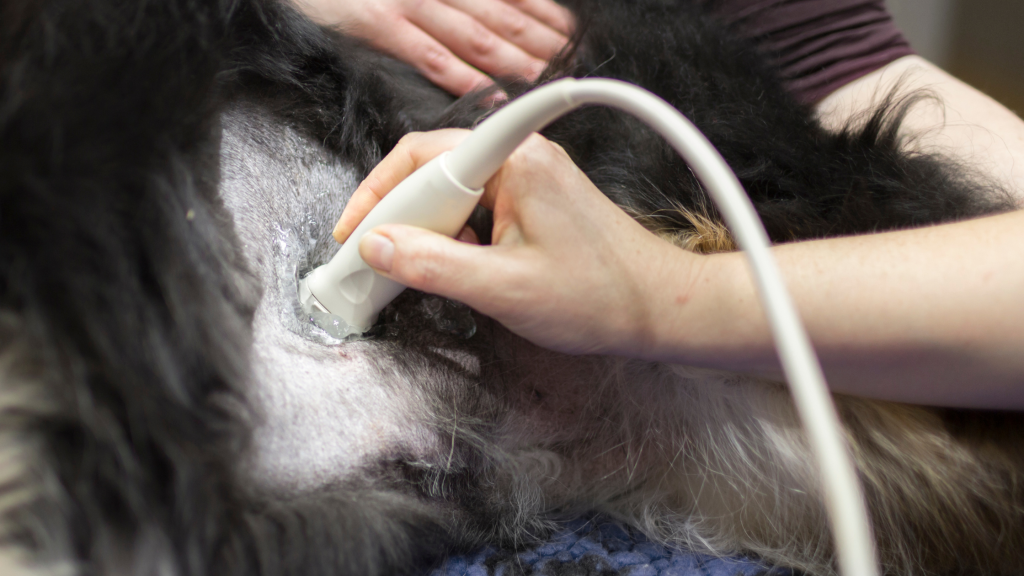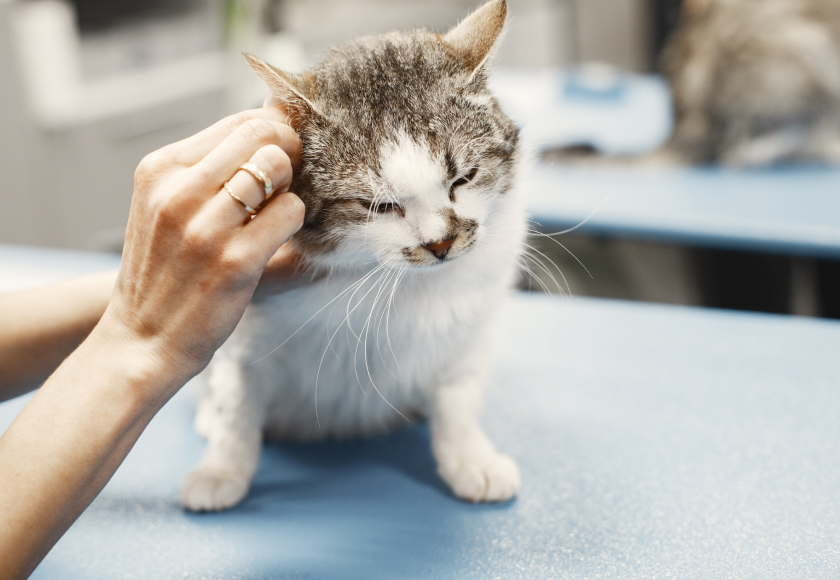Pregnancy in dogs is an important and delicate period for representatives of every dog breed, during which numerous physiological and psychological changes take place.
Pregnancy in dogs is a process that requires the attention of a responsible owner to ensure proper care for both the bitch and her future offspring.
Pregnancy in dogs lasts about 63 days, but this period may be slightly longer or shorter, depending on the breed and individual characteristics of the dog.
From the first signs of pregnancy – changes in behavior, appetite, and energy levels – to giving birth, the bitch experiences hormonal fluctuations, weight gain, and other physiological processes that help her prepare for giving birth and caring for her future offspring.
Every responsible breeder and owner who is planning to breed their dog should be aware of the main stages of pregnancy, how to recognize a healthy pregnancy, and what is important to know when caring for a pregnant dog to ensure her well-being and the health of her offspring.
It is important to note that proper nutrition, care, and veterinary supervision are essential to ensure a successful pregnancy and birth.
Table of contents
Signs of pregnancy in dogs
Pregnancy in dogs is an important and delicate period, characterized by various physiological and behavioral changes.
During this time, the dog undergoes both physical and emotional changes that help her body prepare for the arrival of her puppies. These changes are often noticeable to owners and can be the first sign that the dog is pregnant.
- Early behavioral changes in dogs during pregnancy – At the beginning of pregnancy, a female dog may become calmer and less active than usual. She may begin to show an increased appetite and rest more often.
- Enlargement of the abdomen during pregnancy – after a few weeks, you will notice that the bitch’s abdomen begins to enlarge. This is a normal sign that the fetuses are growing.
- Swollen nipples during pregnancy – The bitch’s nipples become more prominent and, in some cases, may begin to secrete a small amount of milk, which happens to some bitches even at the beginning of pregnancy.
- Behavioral changes during pregnancy – A pregnant dog may become more attached to her owner or other animals, and may start to build nests or look for safe, peaceful places.
These symptoms usually appear several weeks after fertilization and are a natural part of the pregnancy process.

How long does a dog’s pregnancy last?
Pregnancy is a special time when your pet is preparing to have offspring.
It is natural for owners to want to know how long pregnancy lasts and how to properly care for a pregnant dog.
On average, a dog’s pregnancy lasts from 58 to 68 days, usually around 63 days. This period may vary slightly depending on the breed, age, and health of the dog.
Stages of pregnancy in dogs
- First week: the eggs are fertilized and begin to implant in the uterus.
- Second to fourth weeks: intensive embryo development takes place.
- Fifth to seventh weeks: the fetuses take on specific puppy characteristics.
- Eighth to ninth weeks: the puppies prepare for birth, and the bitch begins to look for a quieter place to give birth.
Dangerous signs of pregnancy in dogs
During pregnancy, it is important to monitor the condition and behavior of the bitch, as certain signs may indicate health problems or complications. Here are some signs that should cause concern and be evaluated by a veterinarian:
- Dog vomiting and diarrhea: Although mild nausea and indigestion may occur early in pregnancy, persistent vomiting or diarrhea may signal an infection or other health problem.
- Poor appetite or complete refusal to eat: Some dogs may lose their appetite during pregnancy, but a complete refusal to eat for more than 24 to 48 hours can be a serious sign of health problems such as gestational toxicosis or infection.
- Excessive lethargy: If a dog becomes unusually weak, sleepy, or reluctant to move, this may indicate general weakness, infection, or complications that need to be evaluated immediately.
- Unusual bleeding or discharge: Bleeding or heavy discharge (especially if it is of an unusual color or odor) may indicate that the dog has a uterine infection or is at risk of miscarriage.
- Swollen legs or abdomen: If a dog has unusual abdominal enlargement or leg swelling, this may be a sign of complications such as fluid accumulation (ascites).
- Aggression: A sudden change in behavior, such as aggression, may indicate pain, stress, or hormonal imbalance.
Any of these signs should be evaluated by a veterinarian to prevent more serious complications and ensure the health of the bitch and her offspring. The Begemotas Veterinary Clinic in Vilnius is renowned for its team of experienced specialists who have been caring for pregnant dogs, assisting with births, and performing C-sections for many years. They will not only take care of the birth, but also advise on proper post-operative care.

Bitches in heat after giving birth
After giving birth, a bitch’s body gradually recovers. Usually, bitches come into heat again 4–6 months after giving birth, but this depends on individual characteristics.
Veterinarians recommend monitoring the bitch’s health and, if you plan to breed puppies in the future, consulting with your veterinarian about the most appropriate time.
False pregnancy (pseudopregnancy)
False pregnancy, also known as pseudopregnancy, is a common phenomenon in which a female dog experiences symptoms of pregnancy after sexual contact or shortly after a male dog’s heat cycle, even though she is not actually pregnant.
This is a condition in which the female dog’s body “thinks” it is pregnant after heat, even though it is not. Signs of pseudopregnancy include abdominal enlargement, nipple swelling, milk secretion, and even “maternal” behavior such as nest building and “caring” for toys.
The causes of pseudopregnancy are often hormonal imbalances, especially prolactin and progesterone, which cause the signs of pregnancy in the bitch.
This phenomenon can occur several times a year, most often within a few weeks or immediately after heat. Although pseudopregnancy is usually not dangerous, it can cause psychological stress for bitches and sometimes require medical treatment.
If the symptoms are severe or recur frequently, it is recommended to consult a veterinarian to avoid possible complications such as pyometra (inflammation of the uterus) or mastitis (inflammation of the mammary glands).
Caesarean section for dogs: When is it necessary?
In some cases, natural birth can be complicated, and a C-section is necessary. Indications may include: very large puppies, weak contractions, improper fetal position, or excessively long labor.
If you notice that the bitch is restless, in pain, and labor is not progressing, you must immediately contact a veterinary clinic.
The Begemotas veterinary clinic in Vilnius is experienced and competent in providing professional assistance during both pregnancy and birth.
The clinic’s specialists are ready to perform a caesarean section and provide comprehensive care, ensuring a safe process for both the bitch and her puppies.
If your dog is pregnant or you notice signs of possible pregnancy, don’t delay – register with the veterinary specialists at the Begemotas clinic. Timely professional help can save the lives of your pet and her puppies. Call or register online today!





